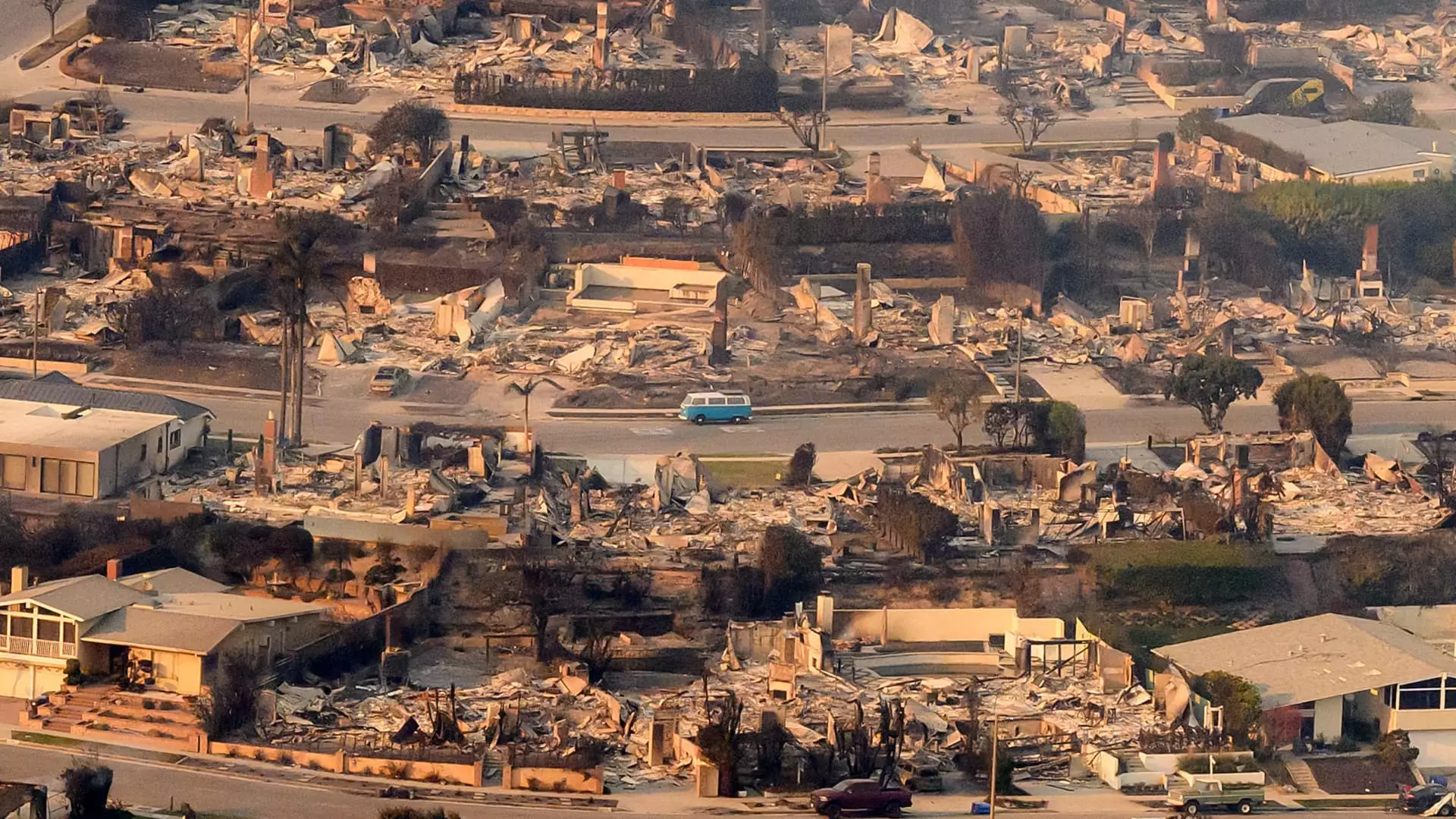The recent wildfires engulfing vast areas of California, especially Los Angeles, have sent shockwaves through the insurance market. The immediate reaction from investors was pronounced, with substantial sell-offs observed in companies heavily vested in California homeowners’ insurance. Stocks like Allstate and Chubb experienced declines of around 4%, while AIG and Travelers faced a 2% decrease. This significant market response indicates a growing concern among investors, reflecting the reality that these catastrophic events can lead to extensive financial liabilities for insurers.
The implications of these infernos are staggering. According to JPMorgan, current estimations of insured losses from the ongoing wildfires could eclipse $20 billion — a figure that may further escalate if fires continue to spread. This potential catastrophe positions the current wildfires to possibly become the most costly in California’s history, surpassing the previously devastating Camp Fire of 2018, which generated $12.5 billion in insured damages. The magnitude of the fires, particularly the Palisades Fire, which has consumed over 17,000 acres and destroyed more than 1,000 structures, showcases the unprecedented scale of this disaster.
Insurers like Allstate, Chubb, and Travelers are notably exposed, as highlighted by market analysts. Chubb, with its focus on high-net-worth individuals in affluent areas, faces even more significant challenges, given the high-value homes in regions affected by the infernos. The financial markets and ratings agencies, such as Moody’s, have reacted, anticipating that insured losses in California could run into the billions due to the elevated values of property in the impacted locales.
The situation has raised alarms not only for primary insurers but also for reinsurers. Companies like Arch Capital Group and RenaissanceRe Holdings are witnessing impacts as projections of increased losses suggest breaches in reinsurance contracts are more likely. This interconnectedness between primary insurers and reinsurers means that the financial ramifications of these fires could resonate throughout the entire insurance ecosystem.
Given the severity of these wildfires, insurers are taking precautionary actions, which include requesting Southern California Edison to preserve evidence related to the fires. This strategic measure highlights the necessity of understanding the origins and progression of these disasters to determine liability effectively. As the situation evolves, insurers may need to reassess their risk models and insurance rates in high-risk areas, potentially leading to increased premiums for homeowners in fire-prone regions.
The wildfires have reopened discussions surrounding climate change and its effect on the frequency and intensity of such disasters. As evidence accumulates, the insurance industry might find itself at a pivotal juncture, prompting a reevaluation of underwriting practices and coverage terms. The implications for California’s homeowners are profound, as they could face heightened costs and stricter terms, fundamentally altering the landscape of home insurance in the state.
In essence, the confluence of a volatile environment and financial implications paints a concerning picture for investors and homeowners alike, challenging the resilience of the insurance industry amid natural disasters.

